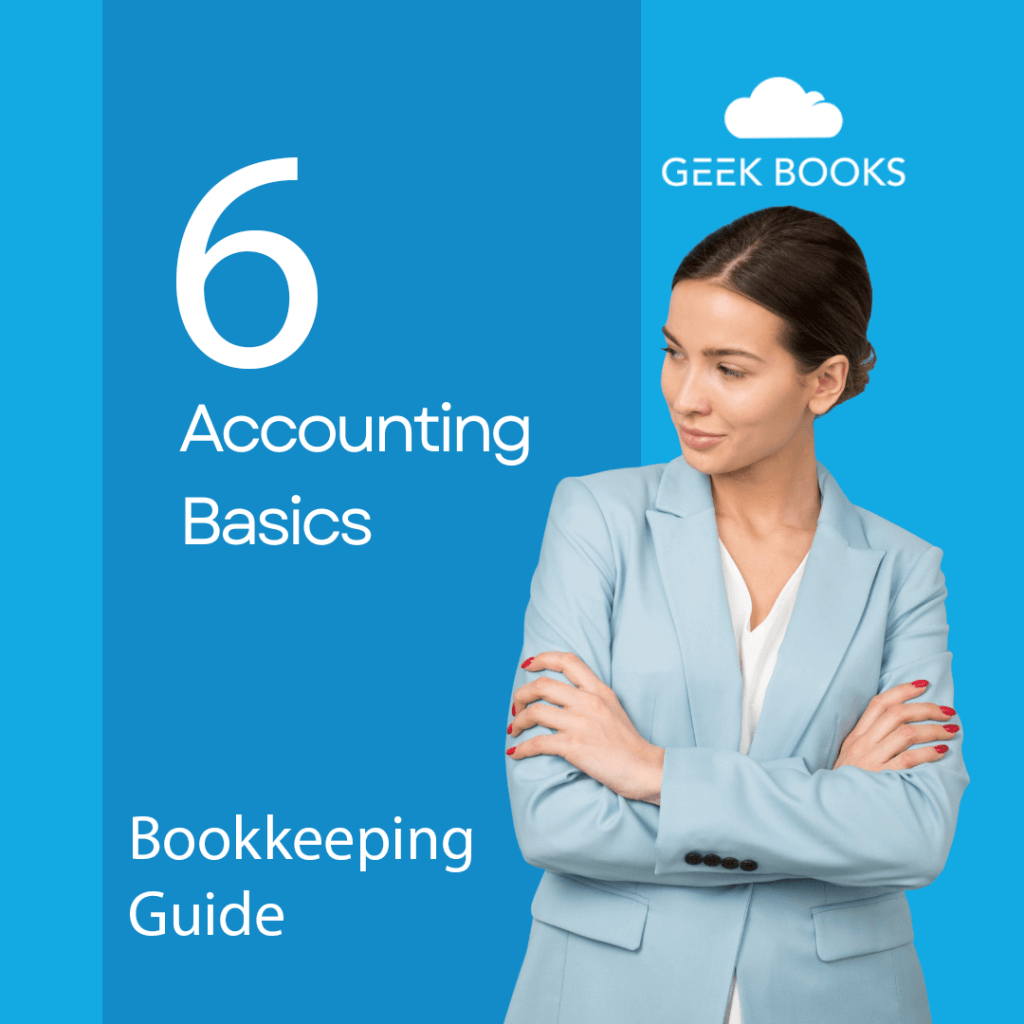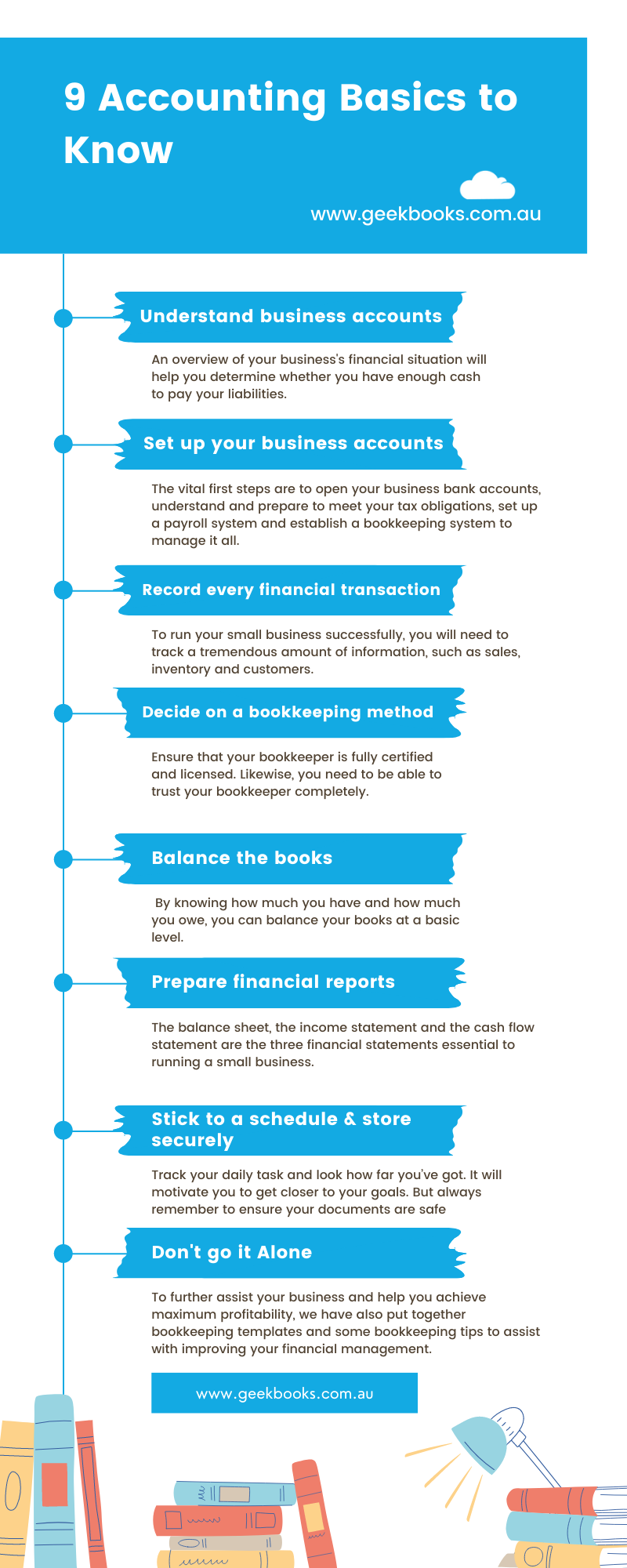When you own a small business, you know that keeping your finances in order is crucial – and that includes your bookkeeping processes.
Even though it is sometimes grouped with business accounting, bookkeeping is an important and independent part of managing your finances and ultimately growing your business.
In order to control costs effectively, manage cash flow, and generate profits, companies need financial information.
It would be very difficult to make key decisions for your business if you did not have reliable data.
In order to manage your business effectively, you need a bookkeeping system that can provide you with all the information you need.
Bookkeeping for small businesses can seem intimidating, especially if you have never done it before.
- But what exactly is it?
- What is its purpose?
- How can you become familiar with basic bookkeeping principles?
There are a lot of questions you might have about business bookkeeping, and this bookkeeping guide has been designed to help answer all of them.
What is bookkeeping?
Despite being so important, many small businesses still ask: “what is bookkeeping?”.
A bookkeeper’s responsibility is to ensure that a business’s financial information is accurate and up-to-date.
Bookkeepers are an integral component of any company’s financial and overall health, and they have their finger on the pulse of the business’s finance and tax compliance requirements every day.
Your bookkeeper is responsible for generating reports that outline all of the money coming and going from your business accounts.
Usually, these reports are sent to business owners and managers to assist them in making decisions.
However, some bookkeepers are also involved in the strategy development process as they have the key figures required to make the right fiscal decisions.
Ever wondered what double-entry bookkeeping is?
In bookkeeping terms, double-entry bookkeeping means that you keep track of money’s source and destination.
For example, a debit and a credit are recorded in every financial transaction to describe how much money is transferred into or out of an account.
Double-entry accounting reduces errors and boosts the balancing of your business’s books.
It helps companies avoid fraud and reduce errors, as well as aiding in financial reporting.
Double-entry bookkeeping is highly beneficial for most companies.
Another common query is how much does a bookkeeper cost?
According to Seek, the average full-time bookkeeper earns around $60,000 per annum.
Two factors that contribute to the cost of bookkeeping are data entry and accounting software.
Accounting tasks such as balancing the books are generally more costly than bookkeeping services that only involve data entry.
The scope of the work and the level of expertise of the bookkeeper also play a substantial role in determining the price.
In cases where a bookkeeper works under an accountant, their rates are likely to be higher.
What does a bookkeeper do?
A bookkeeper plays an essential role in the financial health and compliance of your business.
In addition to recording and processing financial transactions, bookkeepers produce financial statements for companies.
Many bookkeepers are responsible for managing the accounts for an entire organisation, often called the general ledger.
Verifying receipts, making bank deposits, sending payments, and monitoring past-due accounts is their responsibility.
Bookkeepers often prepare and lodge Business Activity Statements (BAS) as well.
Some of the many functions they perform include:
- Utilising spreadsheets, databases, and bookkeeping software
- Recording of cash, cheques, and vouchers and generating receipts
- Keeping a record of financial transactions
- Accurately reconcile bank accounts
- Taking care of the bank feeds
- Managing receivables
- Verifying figures, reports, and postings for accuracy
- Any differences they find in the records should be reconciled or noted and reported
- Payables management
- Ensuring tax compliance by working with your tax preparer
- Preparation of Business Activity Statements (BAS)
- Preparation of financial statements
- Payroll and human resources functions
- Recommending technologies and process improvements
Bookkeeping vs accounting
Bookkeeping and accounting are almost interchangeable terms in the financial world.
They are, however, two different concepts.
A bookkeeper records and classifies financial transactions of an organisation systematically.
Accounting is a part of the broader discipline of finance, while bookkeeping is the basis of accounting.
A firm’s financial position is determined by accounting, which is presented to stakeholders.
Besides assisting a business in making short and long term decisions, it demonstrates its credibility to the market.
9 bookkeeping basics for small business owners
Bookkeeping is a crucial part of running a business.
It allows you to maintain financial records, prepare for tax returns and keep your business organised.
To ensure your finances are in order and avoid the ATO causing further problems, bookkeeping is an essential service for businesses of all sizes.
Listed below are benefits of bookkeeping for beginners.
1. Understand business accounts
An overview of your business’s financial situation will help you determine whether you have enough cash to pay your liabilities.
As a result, you can take action before it becomes an urgent situation.
Understanding how much profit a business made provides insight into whether or not the company was successful.
Unfortunately, business owners are often so busy that it is not always easy to see whether they are making any profit.
2. Set up your business accounts
Congratulations to anyone starting or about to launch a small business.
As an SME owner, you will have to stay on top of accounting tasks as your business launches.
The vital first steps are to open your business bank accounts, understand and prepare to meet your tax obligations, set up a payroll system and establish a bookkeeping system to manage it all.
3. Decide on a bookkeeping method
Ensure that your bookkeeper is fully certified and licensed.
Likewise, you need to be able to trust your bookkeeper completely.
A bookkeeper should answer all your questions regarding how they safeguard your financial information before you hire them.
Bookkeepers should also have excellent communication skills and strong organisation talents.
4. Record every financial transaction
To run your small business successfully, you will need to track a tremendous amount of information, such as sales, inventory and customers.
The lack of an adequate record-keeping system can cause you to overlook essential business details, leading to issues with customer service.
In many cases recording this data is a legal requirement as well.
5. Balance the books
What is the magic formula for determining net worth? To start, you should focus on three words: assets, liabilities, and equity.
By knowing how much you have and how much you owe, you can balance your books at a basic level.
This process gets more complex the longer you are in a business which is why bookkeeping becomes essential.
6. Prepare financial reports
The balance sheet, the income statement and the cash flow statement are the three financial statements essential to running a small business.
You can use a balance sheet to track your assets, liabilities, and owner equity as of a particular date.
In an income statement, revenues and gains are recorded along with expenses and losses over a set amount of time.
Your cash flow statement accounts for how much money has been generated and spent over a certain period.
7. Stick to a schedule
Maintaining your books daily is essential.
A bookkeeping system is an accurate record-keeping system for a company and at the very least helps self-employed people track their expenses and income so that they can file their tax returns.
8. Store records securely
Documents and other data may need to be duplicated, both physically and digitally, to be protected.
Data security has never been more critical than today, with cybercrime a real threat to small businesses.
Ensure you have robust data security policies in place and that they are followed to the letter.
9. Don’t go it alone
Ultimately, DIY Bookkeeping leads to more costs and exposure to tax issues, heavy fines, and cash flow problems.
In addition, DIY bookkeeping will severely restrict financing choices and impede growth without accurate, up-to-date accounting.
Further reading
We understand that the role of a modern bookkeeper can be complex and that businesses may have many questions about the best way they can handle their financial and tax-related obligations.
Therefore, our team has compiled a bookkeeper duties checklist that will enable you to understand the scope of your bookkeeper and see if there are any gaps in your business that need to be filled. You should also familiarise yourself with these bookkeeping terms to make sure that you understand the general language of bookkeeping.
To further assist your business and help you achieve maximum profitability, we have also put together bookkeeping templates and some bookkeeping tips to assist with improving your financial management.
Plus, if you have any additional questions our expert team is always available to provide answers.
Bookkeeping FAQs
What should a bookkeeper know?
An experienced and qualified bookkeeper should be familiar with the intangible and tangible assets on balance sheets when working with them.
Assets classified as tangible include cash or cash equivalents such as stocks and bonds, accounts receivable, inventory of products and fixed assets.
Royalties and goodwill are both examples of intangible assets.
What are the different types of bookkeeping?
There are four different booking services your business can employ.
A general bookkeeper doesn’t have specific training and records all transactions into the general ledger.
A full charge bookkeeper has a higher level of experience and can also handle payroll.
A certified bookkeeper must have experience and qualifications and manage all aspects of finances daily.
Bookkeeping can also be outsourced.
What exactly does a bookkeeper do?
It is the responsibility of a bookkeeper to maintain accurate records of financial transactions and produce financial statements.
Business Activity Statements (BAS) preparation as required for tax purposes could fall under this category.
Duties can include but are not excluded to:
Keeping track of a business’s financial transactions through a bookkeeping program, spreadsheet, or database.
Assuring that invoices and receipts are prepared and sent to customers.
Maintaining and processing employee payroll.
Notifying management of data irregularities.
Creating financial documents such as income statements, balance sheets, and cash flow statements.
Is hiring a bookkeeper worth it?
If you have a new business with minimal bookkeeping, you may be able to handle it yourself with a simple spreadsheet for a short period.
However, when your business grows and becomes more complex – and profitable – it is time to consider getting professional help.
Bookkeepers present you with financial statements that give you the essential info you need to run your business and be compliant with the ATO, know which business expenses are tax-deductible, and they will save you money and increase your profits.
How do I hire a good bookkeeper?
A good bookkeeper can usually be found by asking a person you trust within your industry for a referral.
For example, a reliable accounting firm may be able to provide you with bookkeeping services or refer you to a bookkeeper who has a relationship with them.
They must have the ability to identify errors and balance accounts immediately.
Their financial reports should be accurate and concise, as well as timely. When cash flow is low, a bookkeeper may also need to know how to use credit effectively.
Summary
Bookkeeping and accountancy are necessary expenses for businesses of all sizes, but like every function of your business, we understand that you want quality services without breaking the bank.
You will get expert insights into your business operations by outsourcing your bookkeeping, allowing you to make informed decisions for your company as a result of being in the hands of knowledgeable and qualified professionals.
You can also tap into their expertise as they work with businesses like yours within your industry.
Plus it is also a more cost-effective solution than hiring an in-house bookkeeper.
That is why it makes sense to outsource your bookkeeping and accountancy to an expert firm that will ensure you are profitable and compliant without the expense of employing people full-time internally.
Browse our range of services and give our friendly team a call to discover how much you can save – and how much scope there is for future profitability as well.




